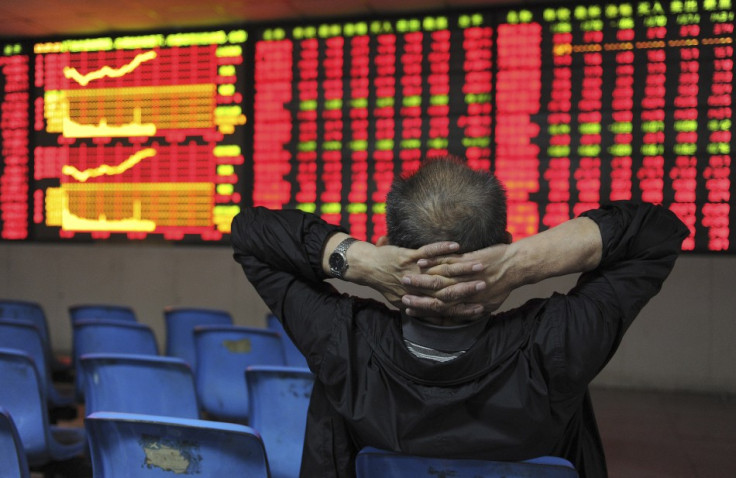China loses title as world's most liquid stock market after curbs on trading

China has fallen behind the US in terms of liquidity in stock markets, as investors turned away from the former's bourses amid trading halts and regulatory curbs on bearish transactions.
Daily turnover on mainland exchanges has averaged the equivalent of $202bn (£129bn, €184bn) over the past 30 days, down from $288bn at the start of July, according to Bloomberg data. The value of shares traded in China is now $72bn lower than in the US.
Despite China's economic slowdown, the country's stock markets have experienced an unprecedented boom in the first half of 2015. China's stock market turnover has been above the US levels for a month through 8 July.
Nevertheless, the collapse in China's stock markets earlier in July, with the Shanghai Composite Index sinking 29% from the year's high, has impacted trading volume.
In line with the crash in stock markets, hundreds of companies were allowed to halt trading, leading to a decline in volumes. The government's intervention to curb short sales and warning against placing large sell orders further affected trade volumes.
Regulators also banned stake disposals by major shareholders, suspended initial public offerings and compelled state-run institutions to support the market with equity purchases.
In addition, China's two main exchanges introduced measures that restrict short sellers' ability to sell and buy back shares in a single day.
"There has been too much regulatory intervention in this market and some institutional investors may be unwilling to enter the market for the long term," Bloomberg quoted Tang Yayun, a Shanghai-based analyst at Northeast Securities, as saying.
"Investors are still in a panic after the stock rout and they are not willing to pile into the market to buy at this stage," said Wei Wei, an analyst at Huaxi Securities Co in Shanghai.
"It will take some time for the market to recover," Wei added.
© Copyright IBTimes 2024. All rights reserved.






